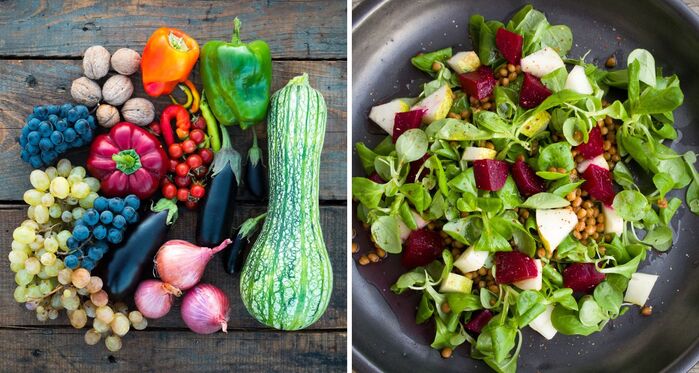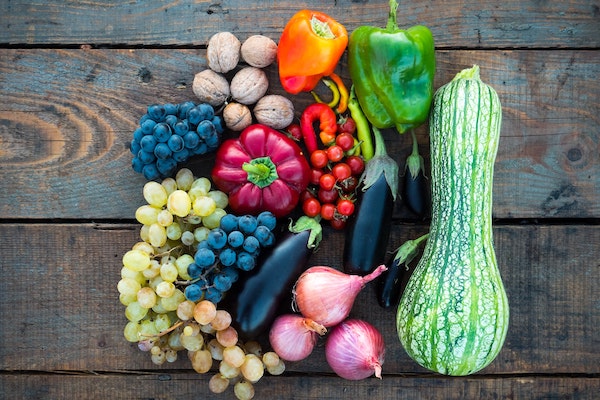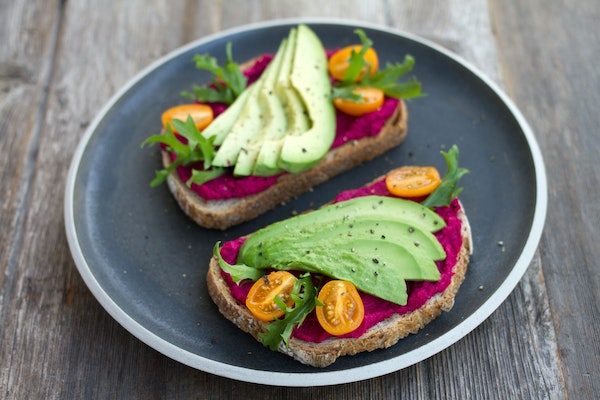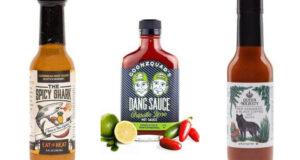Vegan vs. vegetarian – are you wondering what the difference between vegan and vegetarian is? We get it. What is now considered veganism was often referred to as vegetarianism several decades ago.

Vegan Vs. Vegetarian
In short, the difference between vegan vs vegetarian is where someone draws the line in eating animal products.
Vegetarian
According to Merriam-Webster, a vegetarian is “a person who does not eat meat: someone whose diet consists wholly of vegetables, fruits, grains, nuts, and sometimes eggs or dairy products.”
Vegetarian diets have existed since as early as 700 B.C. and for a variety of reasons.
The most common types of vegetarians include:
- Lacto-Ovo vegetarians – those who avoid all animal flesh but do consume dairy and egg products
- Lacto vegetarians – those who avoid animal flesh and eggs but consume dairy products
- Ovo vegetarians – those who avoid all animal products except eggs

Vegan
According to Merriam-Webster, a vegan is “a strict vegetarian who consumes no food (such as meat, eggs, or dairy products) that comes from animals.” Also, “one who abstains from using animal products (such as leather).”
Veganism is sometimes just referred to as strict vegetarianism (you’ll find this meal choice option on flights a lot, so it is beneficial to know it).
The Vegan Society defines veganism as “a philosophy and way of living which seeks to exclude—as far as is possible and practicable—all forms of exploitation of, and cruelty to, animals for food, clothing or any other purpose; and by extension, promotes the development and use of animal-free alternatives for the benefit of animals, humans and the environment. In dietary terms, it denotes the practice of dispensing with all products derived wholly or partly from animals.”

The main thing to realize is veganism is about more than what you eat. If you’re following a vegan diet but not so much worried about non-food products being vegan, then it would be more appropriate to define your diet as plant-based.
Some ingredients vegans don’t consume include:
- gelatin
- honey
- carmine
- pepsin
- shellac
- albumin
- whey
- casein
- vitamin D3 (some forms)
What Are The Benefits Of A Plant-Based Diet?
Many scientific studies, expert opinions, and more show how beneficial a plant-based diet is. A diet focused primarily on whole, minimally processed plant foods can lower your risk of heart disease and benefit your overall health.
A vegan diet isn’t automatically healthy. You can be vegan and still eat plenty of junk food. After all, Oreos are vegan.
How Do Vegans Get Protein?
Vegan protein sources are numerous, and it is a false notion that vegans don’t get protein (as long as they eat a balanced diet, of course).
Vegan protein sources include beans, nuts, legumes, seeds, and a number of meat alternatives. These include tofu, tempeh, and seitan.
- 9 Weird Things To Do In Dublin, Ireland - April 13, 2024
- 14 Weird Things To Do In Indianapolis, Indiana - April 13, 2024
- Saudi Sands: Discovering Arabia’s Cultural Tapestry - April 1, 2024




